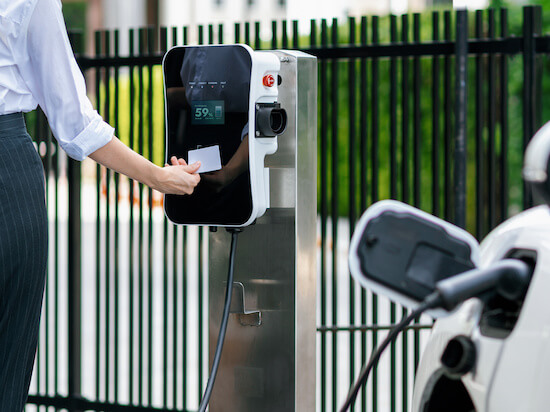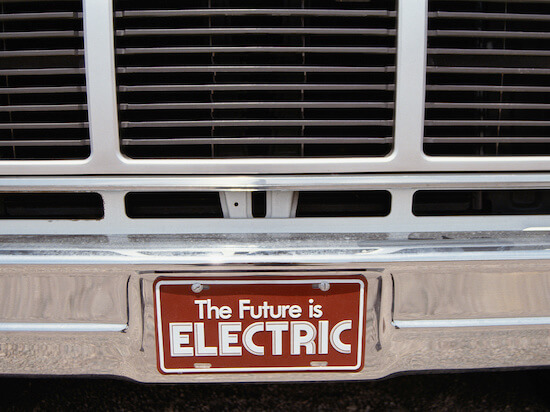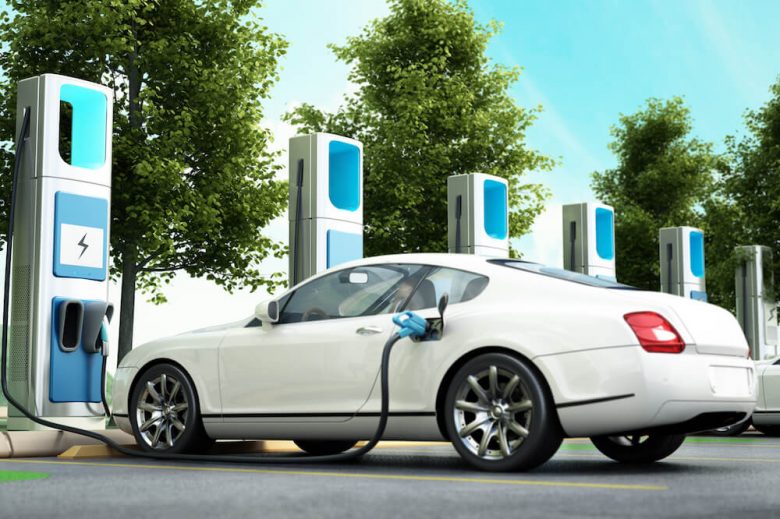The push to drive an EV these days is everywhere you look. From car dealerships to governments to climate change advocates and more. EV startups are popping up at an alarming rate; new designs, upgraded technology, extended range, and superior horsepower. Safe to say the EV revolution is here.
Use eTags© to Quickly Complete Your DMV Service. Renewals, Title Transfers and More, All Online!
Replacement parts for an EV are 2.7% more expensive than those for gas-powered vehicles, according to a report from CCC Intelligent Solutions
The biggest selling point of these battery electric vehicles is that they don’t need gasoline. Less money spent at the pump, which is a big deal for most, especially for those who drive a lot commuting and bringing the kids to the never-ending list of activities. With so much hype around EVs, it’s easy to get lost in the supposed cost savings. But if you take a closer look, driving electric is not as cheap as it sounds or as it’s marketed.
EV charging at charging stations
Charging an electric vehicle is cheaper than pumping gas, but if you charge at a public station instead of home the savings are smaller. DC charging which is really fast, think an extra 100 miles of range in 10 minutes of charging is the most expensive but very convenient.
Level 3 charging (DC) through Electric America charging stations in California costs 48 cents per kWh. Charging your EV at home with a standard 120-volt outlet can take up to 36 hours to “fill up.” Not too convenient when you’re commuting daily. You can get a Level 2 charger at home for faster charging, but that can cost $2,500 not to mention installation.
The average cost is around $0.25 per kWh for Tesla’s superchargers; a full recharge to 250 miles of range would run about $22

A conservative rule of thumb is that an electric car gets 3 to 4 miles per kWh (KBB). The U.S. Energy Information Administration says the average American household pays about 16 cents per kWh. But where you live impacts your electric bill. For instance, in Maine people pay 23 cents per kwh. That’s 7 cents more per kWh than the national average. Californians pay 30 cents per kWh. Hawaiians pay 45 cents per kWh.
Electric vehicle registration fees
Every state asks its drivers to title and register their vehicles, from cars to motorcycles, and RVs. States calculate those fees differently, some by weight of the vehicle, while others by body or usage. Registration fees are paid annually, even if you register for two years at time. If you decide to buy an electric vehicle, know that you must pay extra registration fees on top of the regular ones you’re accustomed to (for gasoline cars).
The cost to replace a damaged battery in an EV can range between $5,000 to $15,000, according to GreenCars
Why drivers must pay additional vehicle registration fees? Because states use gas taxes to pay for road repairs and other infrastructure projects. An EV driver doesn’t use gas and therefore doesn’t pay gas taxes. So to make up for the lack of funds, individual states have an addition car registration fee. It ranges from $50 to $250. For instance, Michigan requires $135 more for registration fee. Colorado imposes $50, while Minnesota asks for $75 more. Some states have different registration fees for battery electric vs. plug-in hybrids.

By the way, skip the trip to your local DMV, tag agency, or tax collector’s office and register or title your electric vehicle online with eTags.com.
Auto insurance coverage
Auto insurance premiums are high in every state these days. According to rate data from anal Quadrant Information Services, the average annual rate for a full coverage policy last year was $1,771. In 2023, that same policy may cost you $2,014. 14% more! Inflation, medical costs, claims frequency and severity are all to blame. For an electric vehicle, car insurance coverage is even more expensive.
AIG, Arabella, Farmers, Mercury, and Travelers offer discounts for electric cars (availability can vary by state)
Most auto insurance providers charge higher rates for EVs since electric cars are more expensive to repair and replace, plus fewer car repair shops have EV-trained technicians. And a battery replacement costs thousands! So you can expect to pay 5% to 20% more to insure an electric model.
SEE ALSO: EV REGISTRATION, THESE STATES CHARGE EXTRA FOR DRIVING ELECTRIC
Insurify’s comparison: Ford Mustang EV monthly insurance rate is $309, while the gas-guzzling version is $288

MoneyGeek says electric vehicle models cost 15% more to insure than traditional gas-powered ones on average. While a Forbes Advisor analysis reports it costs about $100 more a year to insure an electric car compared to similar gas-guzzling vehicles. Last year, the national average insurance premium for an electric vehicle was $2,280 per year, according to a Forbes Advisor analysis of 41 top-selling electric car models. The study found that the Porsche Taycan EV was the most expensive EV to insure at $4,683, while the Toyota RAV4 hybrid was the least expensive at $1,776.
Teslas are the most expensive EVs to insure (MoneyGeek)
Think an EV is for you?








